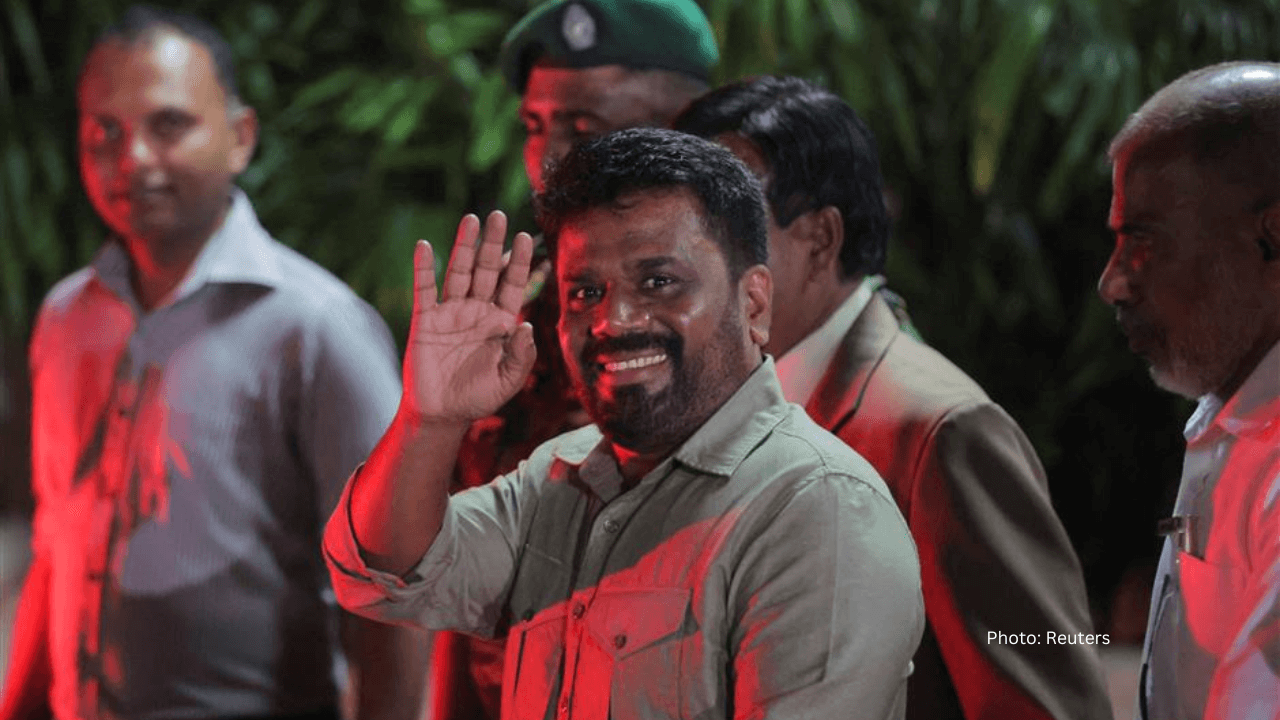Sri Lanka's Political Transformation: NPP's Anura Kumara Dissanayake's Historic Presidential Victory and the Challenges Ahead in 2024
Debi Karmakar | 25 September 2024
In Sri Lanka's historic 2024 presidential election, Anura Kumara Dissanayake of the National People's Power (NPP) became the ninth Executive President, winning 42.31% of votes in an unprecedented second-round counting. Following the 2022 Aragalaya uprising, the election saw 79.46% voter turnout with 38 candidates competing. While Dissanayake's victory marks a shift from traditional leadership, the majority (57.69%) who didn't vote for him indicates some public skepticism about NPP's capability to implement effective changes. However, the new administration's post-election conduct is gradually building trust. The outlook for India-Sri Lanka relations appears promising under the new leadership.
The immediate challenge for the NPP is to fulfil the expectations of the people who voted for them, and winning the trust of the people who did not vote for Anura and seek majority support during the forthcoming parliamentary election. The second challenge will be to get the support of the IMF to renegotiate some crucial clauses and continuing the debt restructuring processes while making the economy progress toward the path of recovery. The third and the most crucial challenge will be achieving economic recovery.
After Sri Lanka's 2022 economic crisis, the Ranil administration's austerity measures and increased taxes further burdened common people. The newly elected President Anura Kumara Dissanayake has promised to address these issues through increased public investment in health, education, transportation, food security, and constitutional reforms for a united Sri Lanka.
The former President had called for parliamentary elections on September 21, 2024. However, NPP's current vote share may not secure the two-thirds majority needed to implement major reforms. The coming weeks are crucial as the administration must gain public confidence and seek support from other political parties without compromising its image as an alternative to traditional politics.
The new administration has shown promising signs through peaceful power transition and immediate actions against corruption, wasteful spending, and political interference in law enforcement. Despite poor performance in Tamil areas, President Anura's inclusive approach toward all communities andcommitment to ending racial, religious, and caste-based divisions has been well-received. While analysts suggest growing public support, the key challenge remains securing a two-thirds parliamentary majority necessary for implementing promised reforms.
President Dissanayake's government agrees with IMF program objectives but seeks alternative implementation methods to reduce public burden. He promised increased public investment in education, health, and transportation. The administration faces the challenge of maintaining IMF's 2.5% GDP budget deficit target while reducing taxes and increasing social welfare spending. The NPP government, led by Prime Minister Harini Amarasuriya, claims they've calculated costs and can achieve this by cutting unnecessary expenditures and preventing public fund wastage. However, implementing these plans after the parliamentary election may prove more challenging than anticipated.
Despite initial concerns about India-Sri Lanka relations under the NPP government due to JVP's( Janatha Vimukthi Peramuna) past anti-India stance and Anura's comments on the Adani project, early indicators suggest a positive diplomatic trajectory. The new administration has adopted a pragmatic approach, seeking to maintain strong bilateral ties while ensuring Sri Lanka's sovereign equality in negotiations.
India was first to congratulate President Dissanayake, and Foreign Minister Jaishankar's prompt visit demonstrated continued diplomatic engagement. Their discussions covered crucial areas including fisheries, national unity, and economic cooperation, with India offering its market access to support Sri Lanka's economic recovery and assistance in anti-corruption digitalization efforts.
The exchange of visit invitations between President Dissanayake and PM Modi further signals warming relations. While controversial projects with Indian companies may face review, the NPP government appears committed to resolving issues through dialogue and negotiation, suggesting a stable future for bilateral relations.
Debi Karmakar is a Research Assistant at CGS
Note: Views in this article are author’s own and do not necessarily reflect CGS policy.
